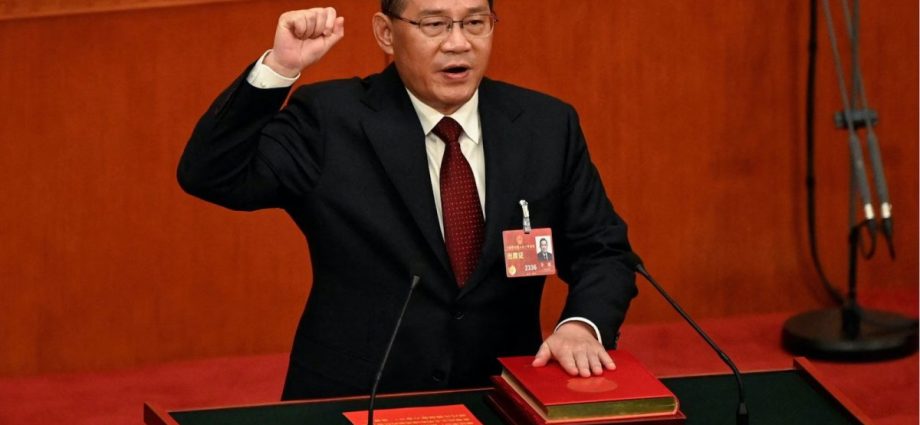The private sector and foreign investors have become increasingly skeptical about doing business in China since Covid-19. The risks of shutdowns, travel restrictions, disruptions to normal operation and supply chains, and liquidity shortages resulting from China’s zero-Covid policy have significantly shaken their confidence.
China has engaged in a multi-pronged regulatory crackdown on a wide range of sectors, from platform economy to online finance to real estate. The crackdown signals that Beijing values loyalty from the private sector and financial stability over growth and access to capital. Beijing’s advocation for “common prosperity” and opposition to “unconstrained economic growth” has only heightened business concerns regarding China’s aggressive redistribution policies.
The increasing antagonism and decoupling between China and the West as well as China’s decision to develop “self-reliance in technology and science” have created enormous uncertainties for business operations and lowered companies’ confidence. Many have questioned whether China is adopting a state-centric and inward-facing economic development strategy and whether the reform and opening-up era has come to an end.
With the termination of China’s zero-Covid policy at the end of 2022 and the recent announcement of a new line-up of top government leaders, 2023 is a crucial year for China to restore business confidence. China will need to demonstrate to the world that it still places a premium on opening up and pro-business policies, particularly for the private sector, in the post-pandemic era.
Chinese leaders have reiterated their determination to open the country up. The 2022 report of the 20th National Party Congress of the Chinese Communist Party emphasizes that China will remain “committed to reform and opening up”, “promote high-standard opening up” and “facilitate the healthy development of the non-public sector.”
During the first plenary session of the State Council’s new term, the new Chinese Premier Li Qiang told his colleagues that advancing opening up, empowering private sectors and attracting more foreign investment are their top priorities.
Li highlighted the importance of the private sector in upgrading China’s manufacturing by visiting the facilities of Build Your Dreams, one of the country’s largest electric vehicle makers and a private company, on his first trip out of Beijing after he became the premier.

During this trip, he also met with a number of heads of big enterprises. Among these heads was the CEO of Xiaomi, one of China’s largest smartphone manufacturers and a privately held company in China.
During the meeting, Li promised to create a business-friendly environment. In addition to sending a message to the domestic private sector, the Chinese government has used international conferences to reassure foreign investors. For instance, Chinese President Xi Jinping sent an unprecedented congratulatory letter to this year’s China Development Forum, reiterating that opening up is China’s fundamental national policy.
During the Forum, both Li and Chinese Vice President Han Zheng met with CEOs of numerous multinational corporations and promised to promote high-quality opening up. Li clearly stated in his opening remarks at the Boao Forum of Asia’s annual meeting that China will continue to increase market access with new measures and improve the business climate for state-owned enterprises (SOEs), private Chinese firms and foreign businesses.
China has taken a whole-of-government approach to addressing the concerns of the private sector. Xi emphasizes that the operation of SOEs must follow the market. This could be interpreted to mean that SOEs should not enjoy privileges and should compete in the market. The central government has taken steps to ease up on the regulatory crackdowns on businesses.
For instance, it granted publishing licenses to 44 foreign games for domestic release and approved over one hundred new video game licenses for domestic companies and Didi Chuxing, a domestic ride-hailing company, has been allowed to register new users.
Ministries of the Central government and local governments have taken steps to promote the development of the domestic private sector and expand opening up. In collaboration with provincial governments, the Ministry of Commerce has launched “The Year of Investment in China” to attract more foreign investment through exhibitions and forums.
The provincial governments of Hebei, Shaanxi, Hainan and Hunan have issued policy measures to support the development of the private economy. Their measures include reducing government intervention in the operation of the private sector, providing financial and credit support to private companies through multiple channels and awarding cash to outstanding private companies.

Provincial leaders have also traveled abroad to entice foreign investment and broaden the opening of their respective provinces. Guangxi Party Secretary Liu Ning, for instance, traveled to Vietnam, Singapore and Malaysia in March and April 2023, signing contracts with a total value of 89.1 billion RMB (US$12.9 billion).
The Chinese government has sent a clear message that it is fully committed to opening up and improving the business environment, especially for the private sector. In the post-pandemic era, it is nearly impossible for China to overthrow its opening up and support for the private sector.
It would be unfeasibly expensive for Chinese leaders to retract their support for the private sector after making statements at high-profile international events. The path-dependence of China’s outward-looking economy also means that any actions against opening up or the development of private sectors would have enormous negative effects not only in economics but also in politics and society.
Xirui Li is a PhD candidate at the S Rajaratnam School of International Studies, Nanyang Technological University, and a Research Fellow at the Intellisia Institute, Guangzhou.
This article was originally published by East Asia Forum and is republished under a Creative Commons license.

